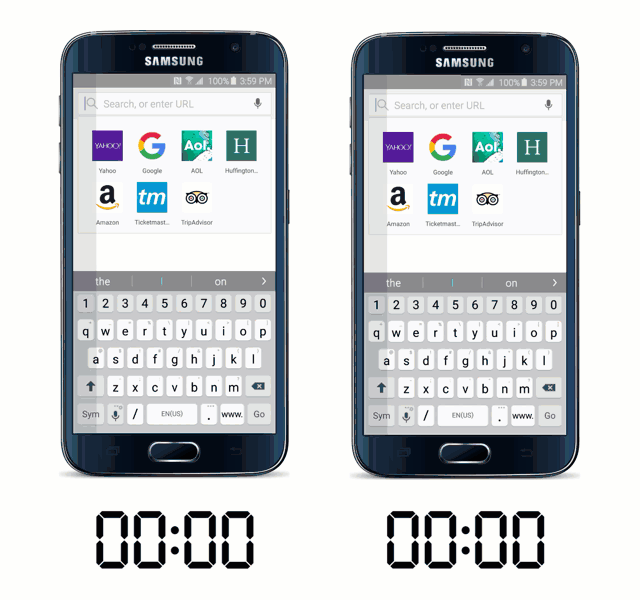Google bans ad-block plugin for Samsung’s Android browser

Samsung’s browser with and without Ad Block Fast. GIF: Ad Block Fast
Google has pulled an ad-blocking plugin for Samsung’s Android browser just days after it made its debut. Ad Block Fast promised to deliver faster web browsing by removing unnecessary content, but Google says the app violates its Play Store policies.
Ad Block Fast wasn’t developed by Samsung, but it was a launch partner for its new ad-blocking API. The South Korean company introduced it in response to Apple’s recent Safari update in iOS 9, which adds support for third-party content blockers.
But it seems Samsung may have hit a stumbling block. Less than a week after Ad Block Fast hit the Play Store, Google has pulled it and notified its creators that the app violates section 4.4 of its Developer Distribution Agreement, resulting in a “policy strike.”
Section 4.4 states, “You agree that you will not engage in any activity with the Store, including the development or distribution of Products, that interferes with, disrupts, damages, or accesses in an unauthorized manner the devices, servers, networks, or other properties or services of any third party including, but not limited to, Android users, Google or any mobile network operator.”
Ad Block Fast had attracted more than 50,000 downloads and began climbing up the charts before it disappeared. Technically, it does indeed violate section 4.4 by interfering with web traffic to remove certain content. But alternatives are still standing.
Adblock Plus, which performs an identical service using the same APIs, is still available to download at the moment. That’s despite the original Adblock Plus app being pulled back in 2013. Perhaps it’s only a matter of time before this one goes, too.
It’s kind of understandable that Google doesn’t approve of ad-blocking apps; ads do make up most of its revenue, after all. They also support blogs like Cult of Android and all the others you frequent on a regular basis. But should they be banned?
- SourceThe Next Web


